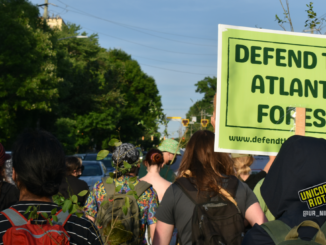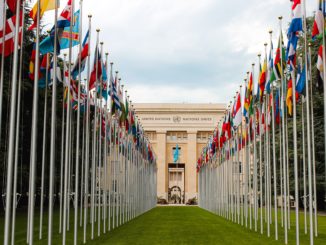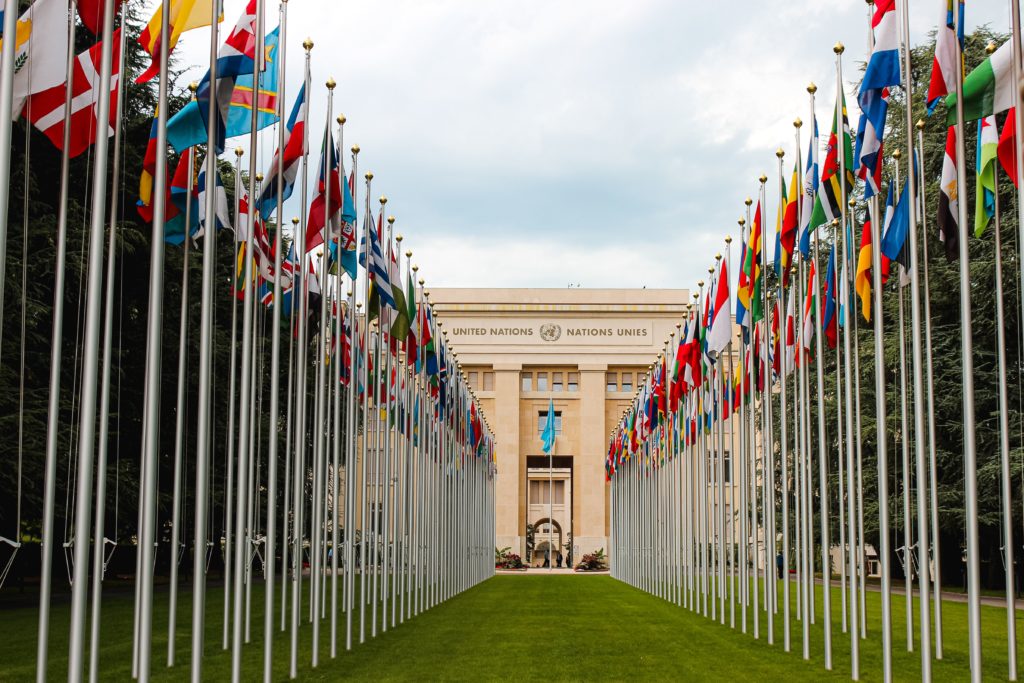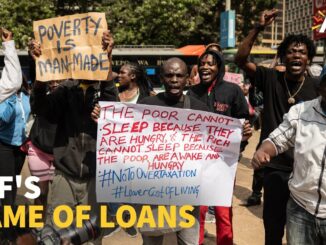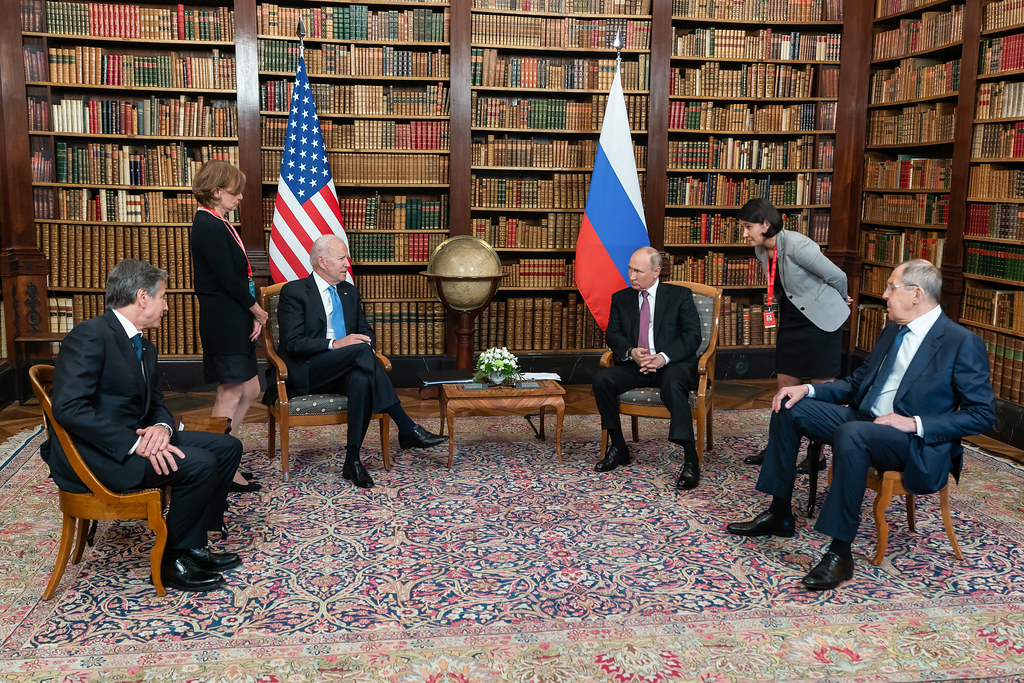
Editor’s Note: The following represents the writer’s analysis.
Chances for a proxy war between Washington and Moscow spiked after the United States refused to provide written guarantees that NATO would neither expand into nor deploy forces to Ukraine and other ex-Soviet states that are not members of the U.S.-led alliance.
However, a reading of the situation indicates Ukraine would be devastated by a NATO-Russia war, which Moscow has been preparing for as diplomatic talks go nowhere. Meanwhile, U.S. President Joe Biden’s latest remarks indicate the United States may be inviting Russia to make a move into Ukraine.
Crossing the ‘Red Line’
In early January, Russian and U.S. representatives held talks over Ukraine, but apparently did not find a common ground. Russian demands were clear: No NATO in Ukraine, and no Ukraine in NATO.
U.S. Secretary of State Antony Blinken as well as NATO Secretary-General Jens Stoltenberg said Russia would have no say over who should be allowed to join the bloc. And that was the outcome of the U.S.-Russia negotiations. No compromise has been reached.
Given that it was Russia that initially issued an “ultimatum” to its Western partners, it was not surprising that—after the failure of their recent summits—Russian Deputy Foreign Minister Sergei Ryabkov said on January 13 that “there is no need for a new round of talks in the near future.” However, his boss, Russian Foreign Minister Sergey Lavrov, reportedly agreed to meet with the U.S. Secretary of State Antony Blinken, and the two diplomats are expected to hold another round of talks on January 21. Such Russian hesitance gives Washington the upper hand over the Kremlin, and the United States and its allies can simply continue demonstrating they do not take Russian demands, “ultimatums” and “red lines” too seriously.
🇬🇧 передала #ЗСУ легкі протитанкові засоби
Це зміцнюватиме 🛡 спроможності України, а надані засоби будуть використані виключно з оборонною метою pic.twitter.com/ipGpqPfInG— Defence of Ukraine (@DefenceU) January 18, 2022
Although Russian officials repeated on several occasions that NATO presence in Ukraine is one of the Kremlin’s “red lines,” NATO member United Kingdom continues to supply weapons to the former Soviet republic. Besides that, reports suggest Canadian special forces have been deployed to Ukraine to deter alleged Russian aggression. Plus, Kiev already has purchased and used U.S.-made Javelin anti-tank missiles, as well as Turkey-produced Bayraktar drones. All that, however, does not mean NATO will go to war with Russia over Ukraine. But such actions clearly demonstrate the West still has significant leverage over the Russian Federation.
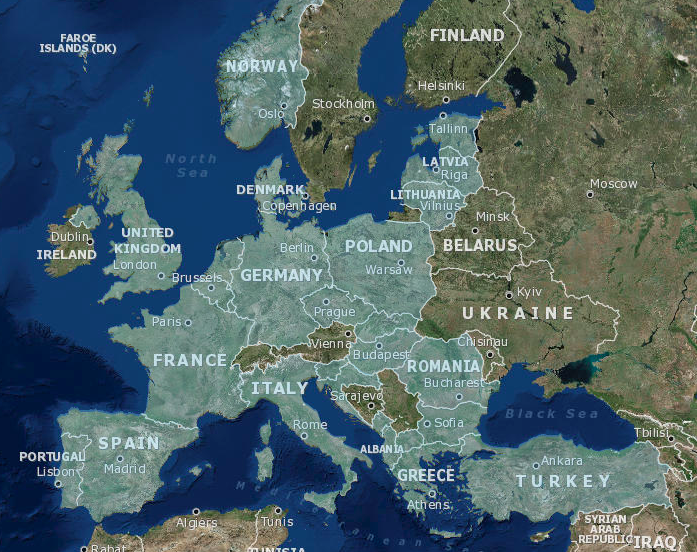
Russia Prepares for Conflict
Moscow, for its part, has been flexing its military muscle. Russia and its only European ally, Belarus, announced joint drills will be held in February, aimed against Polish, Lithuanian and Ukrainian military build-up. According to Belarusian President Alexander Lukashenko, Ukraine continues concentrating its radical nationalists from the National Guard next to the Belarusian border, while more than 30,000 military personnel as well as equipment and weapons are concentrated in neighboring Poland and the Baltic states. As the Russian defense ministry announced, the joint exercises will be held at five training grounds, most of them located in the central and eastern parts of Belarus, not in the south close to the Ukrainian border. Still, the United States has inferred Russia and Belarus could use military drills to invade Ukraine, capture the country’s capital, Kiev, and overthrow the government. How likely is such a scenario?
On January 14, Ukraine was hit with a cyber attack that took down the websites of several government departments including the ministries of foreign affairs and education. The authorities have accused both Russia and Belarus of orchestrating the attack. It is worth remembering that in 2008, three weeks before Russia invaded Georgia to protect its proxies in South Ossetia following Georgia’s offensive against the breakaway region, the Caucasus nation started facing cyber attacks alleged deployed by Russia.
Thus, it is entirely possible that what Ukrainian websites experienced is a message that the eastern European country could experience the same fate if it decides to launch a large-scale offensive against Russia-backed self-proclaimed regions that broke away from Ukraine—the Donetsk People’s Republic and the Lugansk People’s Republic in the Donbass region.
However, unless there is a huge provocation against Russian and Belarusian forces, or even against the Donbass republics, Moscow is unlikely to engage in a military campaign against Kiev. Ever since the Donbass conflict erupted in 2014, Russia has been trying to avoid a direct military confrontation against Ukraine at any cost. Back then, the Ukrainian army was on the brink of collapse, and Russia had an opportunity to seize not just Crimea, but all Russian-speaking regions in southeast Ukraine. It remains unclear why the Kremlin would launch an invasion now, when Ukrainian Armed Forces are well equipped and motivated to fight.
Spheres of Influence
It is worth remembering, however, that many in Russia, as well as in southeast Ukraine, hoped in 2014 that the Kremlin would establish a new state dubbed Novorossiya—an entity whose borders would have spanned from the city of Kharkov in the east to the port city of Odessa on the Black Sea. However, in 2015 Alexander Borodai, who served as the first prime minister of the self-proclaimed Donetsk People’s Republic and is now a member of the Russian Parliament, said Novorossiya was a “false start.” Has now the time come for a de facto division of Ukraine?
As Biden stressed on January 19, Russian President Vladimir Putin will move into Ukraine “because he has to do something.”
“It’s one thing if it’s a minor incursion and we end up having to fight about what to do and not do,” Biden told reporters during a White House news conference marking his first year in office.
Could it be that the U.S. President de facto gave the green light to Putin for a “minor incursion” into the eastern European country? Does that mean Washington will turn a blind eye if Russia intervenes in the Donbass to protect the self-proclaimed republics in case of a Ukrainian military offensive?
Western officials, however, keep threatening Russia that it will pay a “high price” if it decides to invade Ukraine. But what if the Kremlin’s calculation shows the price is acceptable? From a purely military perspective, the longer Russia waits, the higher price it will have to pay. Ukraine will have more sophisticated weapons, which means that Russia’s potential invasion will not go as smoothly as some might hope. Even if Russian troops eventually capture Kiev and other Ukrainian regions, that does not mean all troubles for the Kremlin will be over. The West is expected to impose severe sanctions on the Russian Federation, and Moscow will have to find ways to fund what most Ukrainians would call a “occupation apparatus” if Russia happened to occupy more than just the Donbass region, where the majority ethnically Russian population has welcomed Russian backup. But Moscow would also need to find ways to feed millions of people.
The problem, however, is tensions between Russia and the West over Ukraine have reached such a high level that a proxy war—be it on Ukrainian territory or elsewhere—is unlikely to be prevented. It can be postponed, though. The United States is evidently trying to buy time to supply more weapons to Ukraine, which the West helped manufacture a coup inside of in 2014 by funding neo-Nazis, who now make up a portion of Ukraine’s military. Russia could respond by deploying nuclear missiles in Cuba and Venezuela—countries Washington sees as part of its sphere of influence, or as it calls the Western Hemisphere, its “backyard.” At the same time, the United States does not accept Russia can have its own sphere of influence. That means Moscow—if it aims to be accepted as a serious actor in the international arena—will have to fight for the right to have its own geopolitical orbit.
Finally, Ukraine—as the weakest link in the geopolitical game played by the United States and Russia—is expected to pay the heaviest price, and will be treated like collateral damage in a new cold war.
Nikola Mikovic is a Serbia-based contributor to CGTN, Global Comment, Byline Times, Informed Comment, and World Geostrategic Insights, among other publications. He is a geopolitical analyst for KJ Reports and Enquire.

